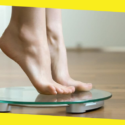Overcoming Drug Addiction: 4 Ways To Ask For Help

The first step to recovering from drug addiction is accepting that substance use has become problematic. The next thing to do is to seek help. Most people dealing with drug abuse don’t ask for help because they feel ashamed or fear being stigmatized and isolated. Unfortunately, this only causes them to continue abusing drugs for longer.
If you’d like to start your recovery journey, doing it all alone may not be helpful. This is because sobriety can be challenging if you have no support. You’ll experience withdrawal symptoms that may be tough to deal with.
Also, sometimes you’ll feel lonely, unworthy, demotivated, and find it hard to rebuild broken relationships with family members and other loved ones. All of these can make you feel tempted to use drugs again. Then, you’ll easily fall back to old habits with no one to hold your hand and help you stay committed to recovery despite the tough times.
Seeking help takes courage and strength. However, it’s a necessary step to a full recovery. Even so, it matters who you ask for assistance. Some people will say no, and this could devastate and discourage you. However, some will be compassionate and understanding. They’ll support you and help you to recover fully.
If you aren’t sure who to ask for help, here are some ways you could consider:
Contents
Toggle1. Find Helpline Numbers And Online Resources
If you’re reluctant to disclose your addiction to someone you know, you can look up the websites of treatment facilities like West Coast Recovery Centers and others. You’ll speak to one of their representatives, and they’ll advise you on the next steps you should take.
Also, most regions have helpline numbers you can call. The assistance provided is typically available around the clock and mostly free. Through these helpline numbers, you can be directed to a support group or recovery facility near you.
Online chat rooms and support groups on social media channels may also be helpful. You can locate them by conducting an online search. You’ll connect with people going through the same thing you are. Hence, they’ll not judge, shame, or neglect you but will be willing to help. They’ll provide the best advice on dealing with withdrawal symptoms and the various addiction treatment options to consider.
It’s sometimes easier to confide in a stranger than a loved one. This is okay, and you aren’t alone. Many other people feel the same way because they fear those they trust will judge them and not offer them the help they need. After receiving advice, it’ll be up to you to take the steps recommended.
2. Reach Out To Someone You Trust
You probably have someone you can talk to about anything. It may be a friend, relative, or colleague. If you do, consider speaking to them about your addiction. If they’re learning this for the first time, they may not respond as you expect.
For instance, they might express anger, confusion, or shock. It’s normal because they’ll be worried about you. However, it doesn’t mean that they won’t help. Assure them that you want to recover, but you need their support. Since they genuinely care, they’ll eventually come around and help you throughout your recovery journey.
Sometimes, a close friend, relative, or co-worker may not be shocked when you open up about your addiction. This might be because they had noticed some signs of drug abuse. So, they’ll be willing and ready to help after you approach them.
Being with someone you trust in your recovery journey is comforting. They’ll be there when things get tough, listen when you need an ear, and encourage you to keep going. Generally, they can contribute to a successful recovery.
If speaking face to face to someone you trust about your addiction seems challenging, write them an email, message, or letter. Regardless of your way of communication, they love and care about you so they’ll be ready to offer the support you need.
3. Find Someone Who’s Had A Similar Experience
You might know a friend, relative, or colleague that has had a similar experience with drug abuse. Since these people fully understand what you’re going through, they can inform you on what to expect during recovery. Thus, if you experience something unfamiliar, you’ll know it’s normal and stay on track toward recovery.
A person who’s struggled with and overcome drug addiction will also tell you what worked for them and what didn’t. For instance, they might have joined an online or community-based support group, therapy, or rehabilitation centre. With proper guidance, you’ll be better positioned to determine what may be helpful to you so that you can choose a path for yourself.
4. Talk To Your Doctor

It may also help to speak to your doctor. Not so many surprises for these professionals; they’ve probably had clients with a drug abuse issue many times before. Hence, you’ll find it less frightening to speak to these health experts.
Your doctor may recommend behavioral therapy, medications, a recovery center, a psychiatrist, or other treatment options that suit you. Follow their instructions to ensure a successful recovery. If you experience any challenges, like severe withdrawal symptoms, reach out to them. They’ll know how to help you. Generally, your doctor can help you attain sobriety.
Essentially, what works for one person may not benefit another. In most cases, age, the severity of addiction, and a person’s health condition determine the most effective treatment option for them.
Final Thoughts
Recovering from drug addiction may be challenging if you’re doing it alone. So, it helps to get support from someone. Even so, speaking to someone else about your addiction might not be easy. It can be because you fear the person you approach might judge, isolate, or stigmatize you.
If you feel afraid to ask for help, you aren’t alone. Many other people taking a step toward sobriety also encounter this so experiencing fear is normal and okay. In finding the right person to talk to, this article suggests finding helpline numbers and online resources or reaching out to someone you trust. You could also talk to someone with a similar experience or speak to your doctor. Generally, the best person to ask for help from is someone you’re most comfortable with.
Recommended For You
5 Best Alternatives to a Gym Membership
Most Inside
Most Inside offers high-quality recommendations and valuable updates to enhance all aspects of your life, providing premium guidance and enriching experiences.




